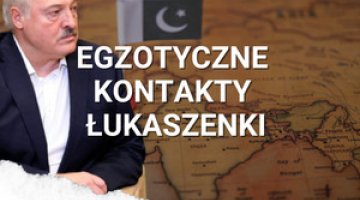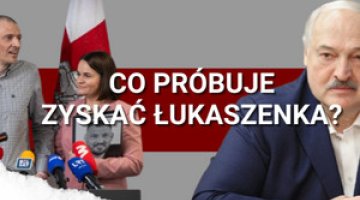The empty ritual: parliamentary elections in Belarus
On 11 September parliamentary elections took place in Belarus. According to the official results, 108 of the 110 mandates were won by candidates supported by the authorities, and two mandates went to representatives of independent groups, including a member of one of the opposition parties. For the first time in 20 years, one deputy in the Chamber of Representatives (the lower house of parliament) will be a representative of the country’s democratic forces. In accordance with the evaluation of independent Belarusian observers, there were a number of violations of the electoral law and the principles of democracy, both during the formation of the electoral commissions, as well as during the voting process, including in particular a drastic overstatement of the turnout. The Belarusian authorities retained full control over the elections, and the results cannot be a true expression of the will of the citizens. The introduction of a single representative of the opposition to a parliament devoid of any importance does not therefore represent the beginning of democratisation in Belarus, but is only a gesture towards the West. President Aleksandr Lukashenko is hoping that simulating democratic elections will be sufficient grounds for the continuation, initiated at the beginning of this year, of dialogue with the EU and the US. In addition, the presence of a representative of the democratic forces in a Chamber of Representatives chosen by false elections sets a challenge to the opposition itself, which will find it harder to undermine the voting results as clearly as it had done before.
Elections under the authorities’ full control
Within the Belarusian authoritarian system, in which the central location of power is the President himself and his administration, Parliament plays a secondary role, which mostly boils down to accepting bills sent them by the Presidential Office or the Government. During the four-year parliament, whose term is just coming to an end, only three bills were put forward to it, representing only 1% of the total number announced during this period. The Belarusian parliamentary elections are therefore nothing more than an electoral ritual devoid of any content, and are only a supplement to the main manifestation of the strength and the stability of the regime, namely the presidential elections. However, the authorities, even in the case of an institution lacking any importance such as this, have consistently blocked the possibility of any opposition candidate obtaining a seat. The results of the elections, then, were never an expression of the public’s real sentiments, but rather the end product of the authorities’ deliberate policy, as they seek to maintain full control over both the election process and the specifics of the results. The same was also the case in this year's parliamentary elections.
In the compositions of the regional electoral commissions, barely 10% of them were people put forward by the democratic forces, which gave the opposition a total of 0.08% participation in the commissions. These bodies were dominated by representatives of pro-government organisations (such as Belaya Rus', a group aspiring to the role of the party of power), or by public-sector employees fully dependent on the state, above all including teachers. As a result, the votes were once again counted in a manner with very little transparency for observers. Another important instrument for facilitating the manipulation of election is advance voting, which takes place in the five days before the day of the election. Officially the authorities say this makes it easier for citizens by allowing them to choose a convenient time to vote, for example if people have plans to leave for the weekend. In reality, however, the regime uses this instrument to force selected groups who depend on the state (such as students, soldiers, hospital patients, prisoners, employees of state-run factories) to vote. Such actions ensure high turnouts (more than the 50% threshold required by electoral law), and also give the government-dominated electoral commissions the chance to replace the ballot papers left overnight in boxes which are not supervised by the poll observers.
The observers’ negative evaluation
Neither the international nor the domestic observers had grounds to recognise the elections as free and democratic. In the preliminary assessment presented on 12 September, the OSCE mission made the same observations that have been reported to the Belarusian authorities for years on the occasion of successive elections. The objections were primarily raised for the following reasons: too frequent obstruction of the observers’ work; reducing the participation of the opposition in election commissions; unequal access to the media for all candidates; and the lack of a centralised national register of electors. In addition, it was common practice to drive up turnout (by 10% or more) in order to exceed the mandatory threshold of 50%, and at the same time create the impression of high social involvement. According to official data, the turnout was 74.8% and was similar to the level reached in the previous general elections in 2012. In the opinion of the independent observers, the vote should be regarded as void in many districts due to the low turnout, and in others, opposition candidates did get sufficient support to receive parliamentary mandates. There were also many cases of over-inquisitive journalists and local observers being removed from polling stations.
A comprehensive evaluation of the genuine electoral preferences of the Belarusian people will be difficult due to the suspension of the activities of NISEPI, currently the only independent public opinion research centre in Belarus conducting regular testing. The decision to suspend their activity was taken by the institution’s own leadership, in response to material broadcast on national television denying the credibility of the polls conducted by NISEPI. In this way, the authorities probably intended to publicly discredit the institute and block its activities.
Pretences of democracy in the context of dialogue with the West
Despite maintaining full control over this year's electoral process, the Belarusian authorities did at the same time strive to create some semblance of liberalisation. Back in February the Central Election Commission created a special expert group whose task was to reform the country’s electoral laws. So far, however, its work has only resulted in some minor procedural changes, and has not dealt with the main concerns consistently raised by OSCE experts. Meanwhile, during the registration of candidates and the campaign itself, the authorities were seen to adopt a relatively liberal approach to the opposition representatives, who for the most part were allowed to contest the seats; sometimes, also, controversial events (such as prominent electoral protests and meetings) were given time in the public media. In this way the regime intended to simulate genuine electoral competition and political pluralism. The authorities also refrained from the use of violent repression, which undoubtedly contributed to the lack of mass opposition demonstrations during and after the vote. Only a small demonstration, organised by opposition leaders Nikolai Statkevich and Uladzimir Niaklajeu, took place in the centre of Minsk on 12 September. However, the main element in this game of appearances was the decision of to admit into parliament Aliona Anisim, the deputy president of the Society for the Belarusian Language, as well as Hanna Kanapatskaya, a candidate from the opposition United Civic Party. For the first time in twenty years, the Belarusian parliament will include people from outside the government system, which Minsk will present as a manifestation of democratisation. At the same time, these particular activists are unlikely to radically attack the regime. Anisim has consistently distanced herself from politics and focused primarily on strengthening the role of the Belarusian language and culture. Hanna Kanapatskaya has been running her own company for years, and will focus on economic issues.
The appearance of democracy created by the Belarusian authorities is undoubtedly part of the dialogue with the EU, which was renewed after the EU lifted its sanctions against Belarus on 15 February. The unprecedented decision concerning the composition of parliament indicates how Minsk is counting on the further development of cooperation, particularly to speed up negotiations with the International Monetary Fund on a new stability program with a value of US$3 billion. In the context of falling income from exports (which fell in the first half of this year by up to US$3 billion), the country’s low foreign exchange reserves (on 1 September these amounted to only US$4.7 billion) and this year's foreign debt repayments of US$3.3 billion, getting the financial support from the IMF will be of great importance for the stabilisation of the Belarusian economy, which is threated with a deep crisis.
Divided opposition and passive society
The Belarusian opposition, as in the previous parliamentary elections in 2012, came divided into the election campaign. Each grouping led its own campaign based on its own programme and group of candidates. Coordination took place only between the groups which make up the so-called centre-right coalition. This year's elections deepened the divisions within the opposition camp, which had been growing since last year. Despite the lack of trust between the parties, however, most opposition candidates avoided mutual accusations and negative comments. Due to the fear of a repeat of the bloody incidents in Ukraine, which is still widespread among the Belarusian public, the vast majority of the leaders of opposition parties withdrew from organising any street demonstrations. One new and interesting phenomenon was the sharp criticism included in the speeches of some opposition candidates of the citizens themselves, who were accused of passivity and a lack of interest in the political situation in the country. The passivity of the general public, who see no real power in parliament and are convinced of the universal manipulation of the election results, was confirmed by numerous reports from Belarusian independent journalists observing both the campaign and the voting itself.
Forecast
In the current conditions, allowing an opposition representative into parliament does not threaten the stability of the authoritarian system of power. Moreover, the opposition now finds itself in a difficult and ambiguous situation, in which it must reconcile the denial of the elections’ democratic nature with the presence of one of its representatives in the lower house of parliament. This could aggravate the already serious divisions within the camp of democratic forces. In turn, the entrance to parliament of Aliona Anisim, who is known for her activism to strengthen the role of the Belarusian language, may be a signal that the authorities are interested in emphasising Belarus’s linguistic and cultural differences (above all from Russia). As a result of Minsk’s manoeuvrings, the EU – despite numerous objections by international observers –will probably appreciate the gestures of good will, and will continue the dialogue which restarted a few months ago. In addition, it cannot be excluded that the United States will also lift its sanctions, which made this decision conditional on how the parliamentary elections passed off. The dialogue between Belarus and the West may then be joined by the United States, which would increase the chances of getting the financial support necessary to sustain the Belarusian economy, which is threatened with collapse.








